 Benjamin Howson is from Surrey (United Kingdom). Ben obtained an MSc in Statistics from the University of Warwick before joining StatML. Here, he focussed on statistics and machine learning, with specific interests in their application to healthcare-related problems. At StatML, Ben will be working on both the theoretical and practical sides of reinforcement learning, aiming to develop methods that find application in a wide range of fields. In his spare time, he enjoys playing the guitar, weightlifting and computer programming.
Benjamin Howson is from Surrey (United Kingdom). Ben obtained an MSc in Statistics from the University of Warwick before joining StatML. Here, he focussed on statistics and machine learning, with specific interests in their application to healthcare-related problems. At StatML, Ben will be working on both the theoretical and practical sides of reinforcement learning, aiming to develop methods that find application in a wide range of fields. In his spare time, he enjoys playing the guitar, weightlifting and computer programming.
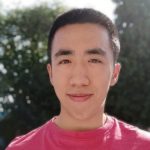
Ben Tu grew up in London and holds an integrated masters in Mathematics from Imperial College London. He specialised his studies in stochastic analysis and applied statistics. His master project was focussed on optimising high-dimensional nonlinear filtering algorithms by drawing ideas from multilevel and multi-index Monte Carlo. At StatML, he will work on designing experiments using artificial intelligence in collaboration with the flow chemistry initiative at the chemical company BASF. In his spare time Ben enjoys sports, reading and computer games.
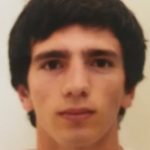 Andrea Brizzi is an Italian student who obtained his integrated masters in MORSE at the University of Warwick. In his studies, he developed a deep interest in probability and its applications, especially for what concerns stochastics processes and Montecarlo methods. His dissertation concerned the study of a class of multidimensional diffusions in the context of modelling allele distributions over time. The aim was to exploit the mathematical properties of such processes to develop inference techniques in various settings.
Andrea Brizzi is an Italian student who obtained his integrated masters in MORSE at the University of Warwick. In his studies, he developed a deep interest in probability and its applications, especially for what concerns stochastics processes and Montecarlo methods. His dissertation concerned the study of a class of multidimensional diffusions in the context of modelling allele distributions over time. The aim was to exploit the mathematical properties of such processes to develop inference techniques in various settings.
During his time on the StatML programme, Andrea wishes to learn how Imperial College is using Bayesian models to understand COVID diffusion, with the hope of contributing. Aside from academics, Andrea enjoys playing football, running, and playing the piano.
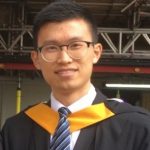 Xing Liu grew up in Beijing and studied Mathematics with Statistics for his bachelor’s degree at Imperial College. He then went on to complete a masters (Part III) at University of Cambridge, where he focused on optimization and Statistics and developed an interest in statistical learning theory and Bayesian inference. His Part III essay on Approximate Bayesian Computation looked into the intersection of this inferencing method and optimal transport. His research interests are broad, spanning the fields of Monte Carlo methods, kernel methods and Bayesian tree models. At StatML, he hopes to continue his research in MCMC/SMC-related areas, while exploring other fields including natural language processing and reinforcement learning. Besides Statistics, Xing enjoys playing basketball and the piano.
Xing Liu grew up in Beijing and studied Mathematics with Statistics for his bachelor’s degree at Imperial College. He then went on to complete a masters (Part III) at University of Cambridge, where he focused on optimization and Statistics and developed an interest in statistical learning theory and Bayesian inference. His Part III essay on Approximate Bayesian Computation looked into the intersection of this inferencing method and optimal transport. His research interests are broad, spanning the fields of Monte Carlo methods, kernel methods and Bayesian tree models. At StatML, he hopes to continue his research in MCMC/SMC-related areas, while exploring other fields including natural language processing and reinforcement learning. Besides Statistics, Xing enjoys playing basketball and the piano.
 Tresnia Berah was originally from Paris and moved to London 20 years ago to start her career in quantitative finance. She originally graduated from Ecole Polytechnique (Paris) and Ecole des Mines de Paris (now MinesParisTech). Tresnia worked at Goldman Sachs and JP Morgan respectively in M&A and then in their structured derivatives team. She also worked for a few years at McKinsey and Cie as a management consultant before starting a family. Tresnia had a career break to raise her five young children and more recently finished another MSc in Mathematics and Finance at Imperial College. Her thesis focused on fitting neural networks in order to price options under rough stochastic volatility models. Having loved the process of her MSc research project, and being very interested in Bayesian statistics and machine learning, Tresnia has now embarked on the programme full time, ideally to pursue a second career in research. She is currently mostly looking at adapting sparse variational inference methods to deep Gaussian processes and would like to investigate applications in quantitative finance.
Tresnia Berah was originally from Paris and moved to London 20 years ago to start her career in quantitative finance. She originally graduated from Ecole Polytechnique (Paris) and Ecole des Mines de Paris (now MinesParisTech). Tresnia worked at Goldman Sachs and JP Morgan respectively in M&A and then in their structured derivatives team. She also worked for a few years at McKinsey and Cie as a management consultant before starting a family. Tresnia had a career break to raise her five young children and more recently finished another MSc in Mathematics and Finance at Imperial College. Her thesis focused on fitting neural networks in order to price options under rough stochastic volatility models. Having loved the process of her MSc research project, and being very interested in Bayesian statistics and machine learning, Tresnia has now embarked on the programme full time, ideally to pursue a second career in research. She is currently mostly looking at adapting sparse variational inference methods to deep Gaussian processes and would like to investigate applications in quantitative finance.
 Michael Komodromos received his Masters degree in Statistics at Imperial College London, where his dissertation was focused on the analysis of intensive care data. Prior to joining Imperial, he completed his undergraduate degree in Statistics, Economics and Finance at University College London.
Michael Komodromos received his Masters degree in Statistics at Imperial College London, where his dissertation was focused on the analysis of intensive care data. Prior to joining Imperial, he completed his undergraduate degree in Statistics, Economics and Finance at University College London.
Throughout the programme he will be working alongside Cancer Research UK developing statistical methods to aid cancer diagnosis and prognosis. He is particularly interested in computational statistics and enjoys applying statistics in a diverse range of fields.
 Alexander Larionov is an avid powerlifter and studied a master’s in mechanical engineering. However, upon graduating in 2019 he realised that programming and software engineering were more where his passions lay and were already core skills in not only engineering but every industry. This prompted him to pursue some professional experience in programming, leading to work as a Python data engineer at a renewable energy aggregator for a year. Meanwhile, machine learning was clearly becoming more and more integral to modern research and business and as the shaping force of the future he really wanted to understand it on a deeply technical level and engage in its development.
Alexander Larionov is an avid powerlifter and studied a master’s in mechanical engineering. However, upon graduating in 2019 he realised that programming and software engineering were more where his passions lay and were already core skills in not only engineering but every industry. This prompted him to pursue some professional experience in programming, leading to work as a Python data engineer at a renewable energy aggregator for a year. Meanwhile, machine learning was clearly becoming more and more integral to modern research and business and as the shaping force of the future he really wanted to understand it on a deeply technical level and engage in its development.
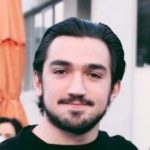 Jose Pablo Folch Urroz grew up in Mexico before coming to the UK to study an MSci in Mathematics at Imperial College, which he finished in 2020. During the final years, he focused mostly on statistics modules and on stochastic processes, and wrote his dissertation on the application of Reinforcement Learning, through self-play, to Liar’s Dice. In his time at StatML he will be focusing on the applications of Bayesian Optimization to flow chemistry, funded by BASF and supervised by Dr Ruth Misener & Dr Mark van der Wilk. Outside of academia, Jose is a big football fan and loves attending games. You can also find him travelling, listening to live music or trying new types of food.
Jose Pablo Folch Urroz grew up in Mexico before coming to the UK to study an MSci in Mathematics at Imperial College, which he finished in 2020. During the final years, he focused mostly on statistics modules and on stochastic processes, and wrote his dissertation on the application of Reinforcement Learning, through self-play, to Liar’s Dice. In his time at StatML he will be focusing on the applications of Bayesian Optimization to flow chemistry, funded by BASF and supervised by Dr Ruth Misener & Dr Mark van der Wilk. Outside of academia, Jose is a big football fan and loves attending games. You can also find him travelling, listening to live music or trying new types of food.
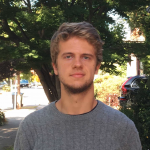 Oscar Clivio studied mathematics and computer science at Ecole des Ponts ParisTech, in France, then received a master’s degree in machine learning at Ecole normale supérieure Paris-Saclay. His master’s thesis, written following an internship at UC Berkeley, focuses on probabilistic machine learning and Bayesian statistics applied to the analysis of single-cell transcriptomics data. This experience refined his interest in Bayesian-flavoured statistics and machine learning, as well as biomedical applications. After having spent a few months as a consultant in these areas, he is joining StatML. He will work on a project in collaboration with Novo Nordisk, at the intersection of causal inference and statistical machine learning for treating multimorbidity. Outside academics, Oscar enjoys coffee, running and reading.
Oscar Clivio studied mathematics and computer science at Ecole des Ponts ParisTech, in France, then received a master’s degree in machine learning at Ecole normale supérieure Paris-Saclay. His master’s thesis, written following an internship at UC Berkeley, focuses on probabilistic machine learning and Bayesian statistics applied to the analysis of single-cell transcriptomics data. This experience refined his interest in Bayesian-flavoured statistics and machine learning, as well as biomedical applications. After having spent a few months as a consultant in these areas, he is joining StatML. He will work on a project in collaboration with Novo Nordisk, at the intersection of causal inference and statistical machine learning for treating multimorbidity. Outside academics, Oscar enjoys coffee, running and reading.
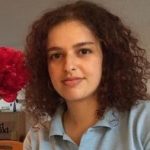
Lucile Ter-Minassian has a keen interest in statistical modelling and computational methods with applications in the epidemiological sciences. She aims at conducting socially impactful research. After her Bachelors, Lucile worked as a Research Assistant in Psychiatric Epidemiology at King’s College London, using Machine Learning for investigating ethnical biases in ADHD diagnosis. She then interned at IBM Research in Kenya, examining Malaria Policy Making using Reinforcement Learning. Lucile later went on to obtain both an MSc in Applied Mathematics at Ecole Centrale Paris, and an MSc in Medical Statistics at the London School of Hygiene and Tropical Medicine, for which she received an award. At StatML, Lucile hopes to explore Bayesian Statistics and Causal Inference methods further. Outside of academics, Lucile acts as a volunteer and enjoys yoga.
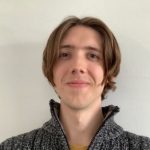
Thomas Matcham completed his integrated masters in Mathematics at Imperial College London in 2018. In his final year he became interested in computational statistics and wrote his dissertation on the application of support vector machines to predicting cancer sensitivity to a range of drugs. For the following two years he worked with a start-up trying to motivate retrofitting Europe’s housing stock, applying neural networks and testing a variety of methods to model energy savings and air quality metrics. Outside his studies Thomas can usually be found out cycling, climbing and playing tennis.
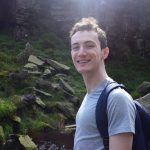 Jake Topping studied his undergraduate and masters in Mathematics at the University of Oxford. In his dissertation, titled “Deep Learning in Continuous Time”, he researched using neural networks in differential equations for learning the dynamics of multivariate time series. Since graduating Jake has worked in the Centre for Neural Science at New York University developing reinforcement learning agents for use in studying human decision making and planning, and as a quantitative researcher at a trading firm. Jake is back at Oxford completing the StatML programme part-time from his flat in London (or more likely, Pret).
Jake Topping studied his undergraduate and masters in Mathematics at the University of Oxford. In his dissertation, titled “Deep Learning in Continuous Time”, he researched using neural networks in differential equations for learning the dynamics of multivariate time series. Since graduating Jake has worked in the Centre for Neural Science at New York University developing reinforcement learning agents for use in studying human decision making and planning, and as a quantitative researcher at a trading firm. Jake is back at Oxford completing the StatML programme part-time from his flat in London (or more likely, Pret).
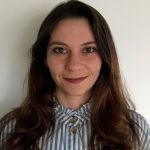
Desislava Ivanova studied the Masters of Mathematics, Operational Research, Statistics and Economics (MMORSE) at the University of Warwick, specialising in Statistics and Mathematics. She spent a study year abroad at LMU Munich. After graduating in 2016 Desi worked as a quantitative analyst at a large investment bank in London, researching and developing systematic trading strategies across asset classes. As a StatML student she wishes to explore the world of Bayesian statistics — inference, generative modelling and probabilistic approaches to machine learning. In her spare time Desi enjoys board games, sports and craft beer.
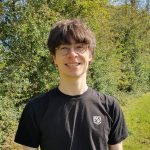
Andrew Campbell did an integrated masters in Engineering at Cambridge before starting the StatML programme. For his undergraduate studies, he specialised in Information and Computer Engineering and for his master’s project he looked into the links between sampling and optimization based approaches for inference. On the course, he will be supervised by Arnaud Doucet and Tom Rainforth at Oxford. Andrew is generally interested in methods of performing inference that are accurate and can be scaled to large datasets, with a particular interest in applications to deep generative modelling.
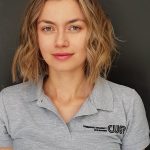 Zoi Tsangalidou is originally from Greece. She completed a BA in Mathematics followed by an MPhil in Epidemiology at the University of Cambridge. During her undergraduate studies, she focused mainly on Statistics and Probability and developed an interest for their biomedical applications. For her MPhil thesis, she conducted original quantitative research on the existence of statistical interaction between deleterious genetic variants in breast cancer susceptibility genes using sequencing data. By joining the StatML programme, she hopes to further her knowledge and understanding of advanced statistical methods and apply these to problems in biology and healthcare. Outside her studies, Zoi has completed multiple internships as a software engineer and analyst in the investment banking and consulting sectors.
Zoi Tsangalidou is originally from Greece. She completed a BA in Mathematics followed by an MPhil in Epidemiology at the University of Cambridge. During her undergraduate studies, she focused mainly on Statistics and Probability and developed an interest for their biomedical applications. For her MPhil thesis, she conducted original quantitative research on the existence of statistical interaction between deleterious genetic variants in breast cancer susceptibility genes using sequencing data. By joining the StatML programme, she hopes to further her knowledge and understanding of advanced statistical methods and apply these to problems in biology and healthcare. Outside her studies, Zoi has completed multiple internships as a software engineer and analyst in the investment banking and consulting sectors.